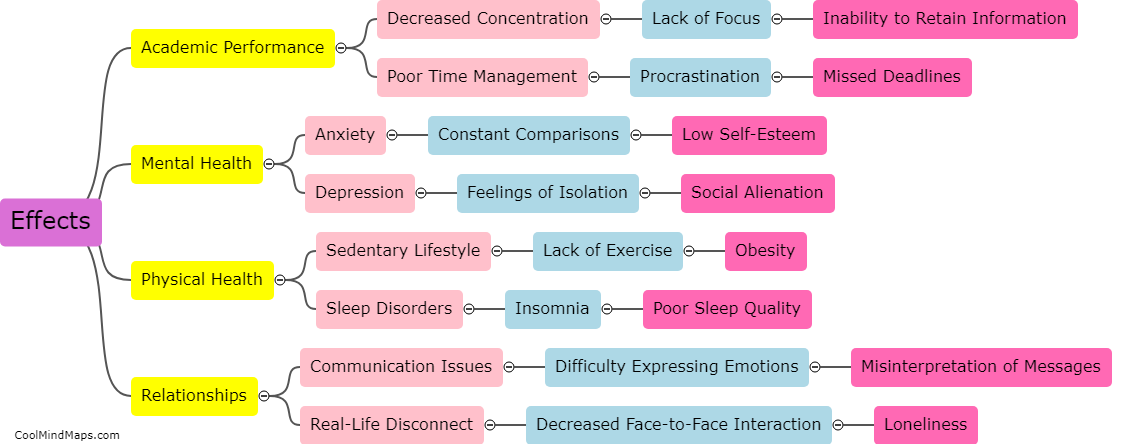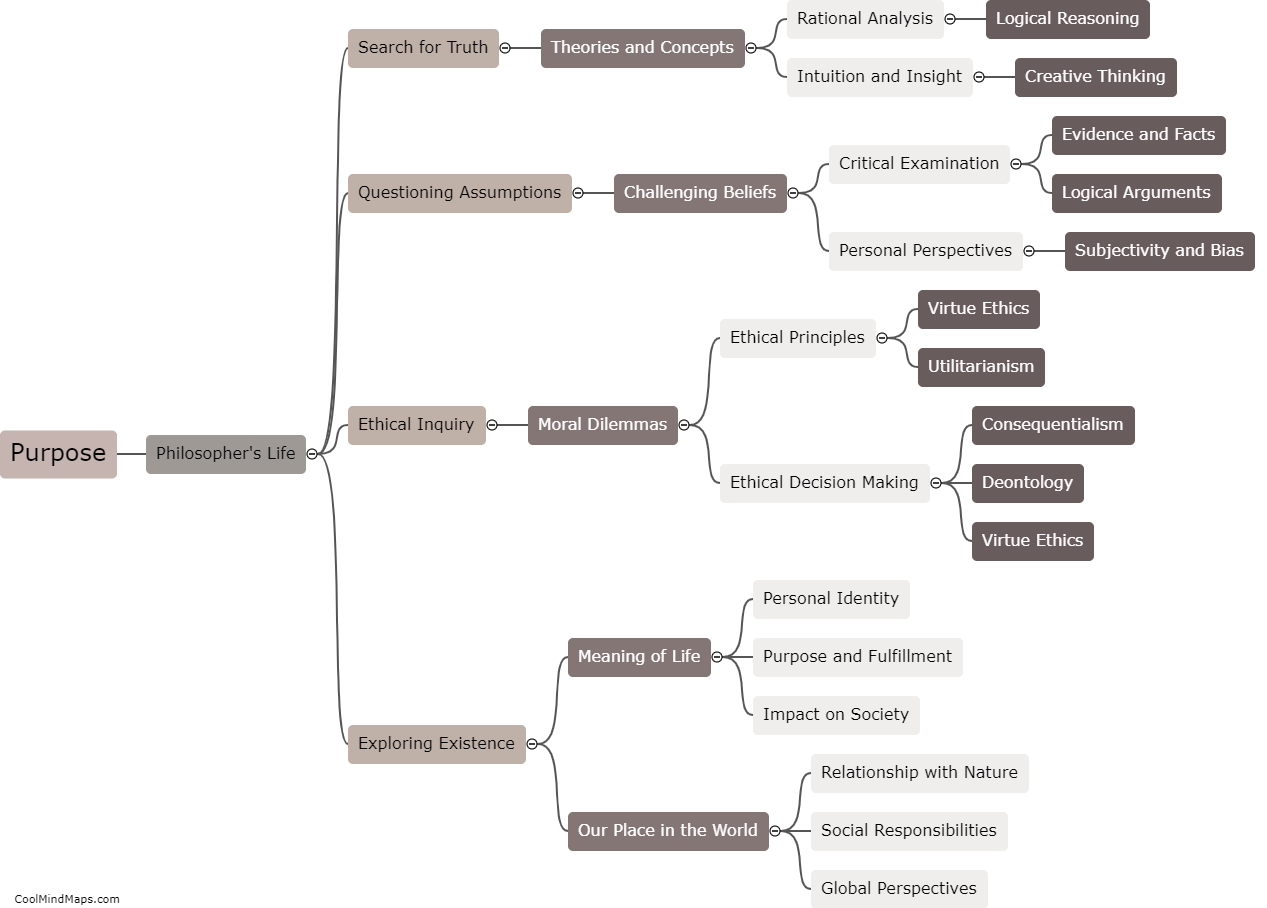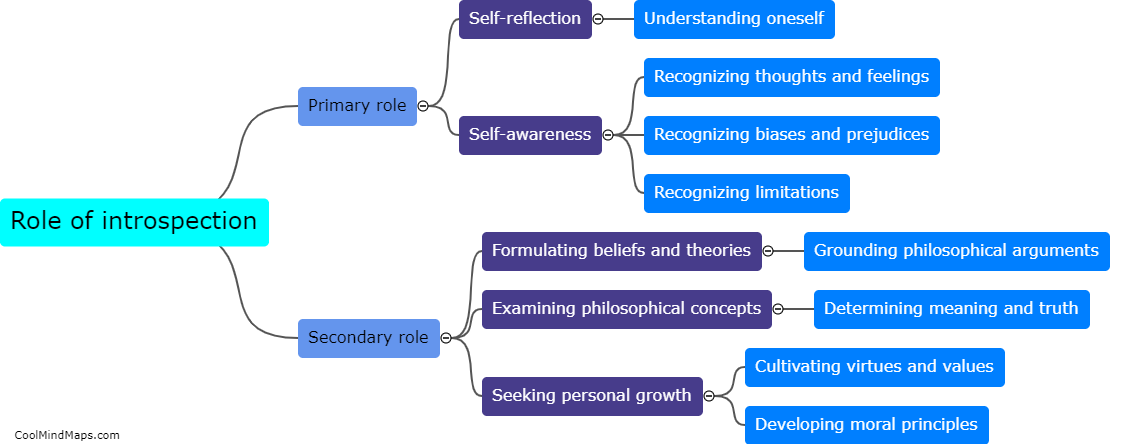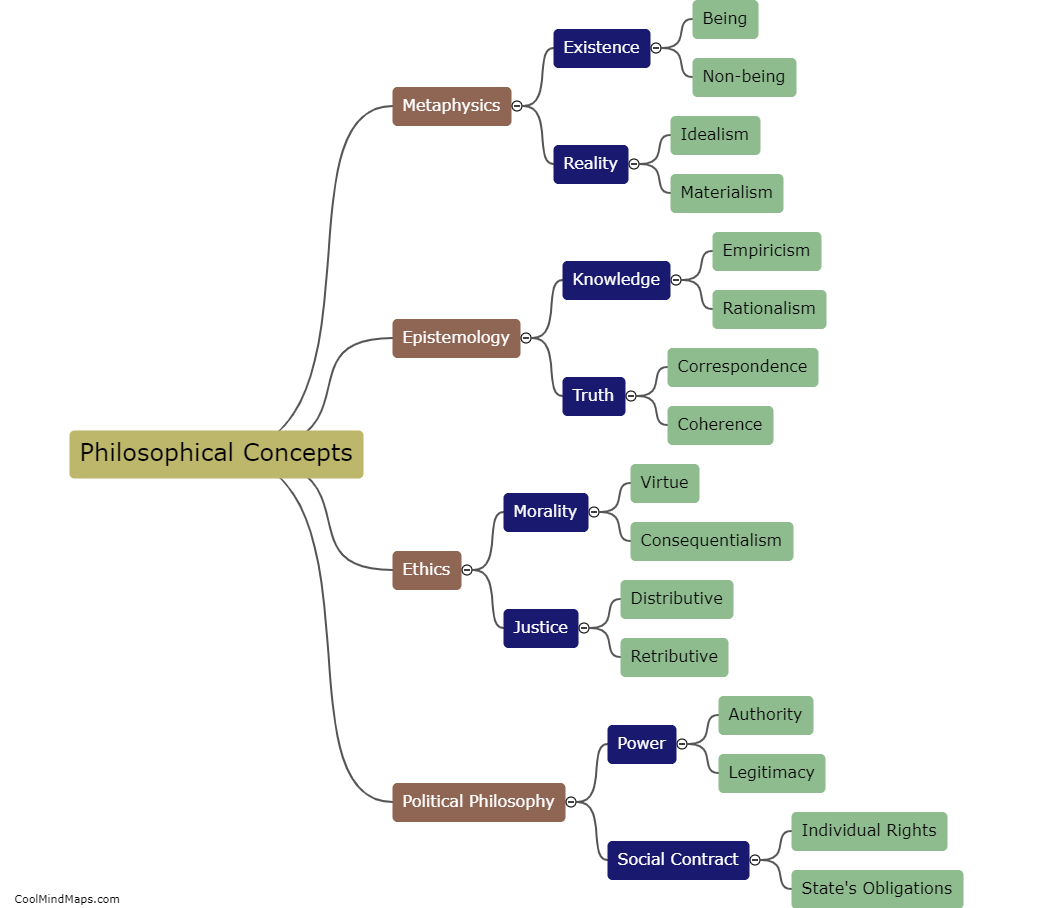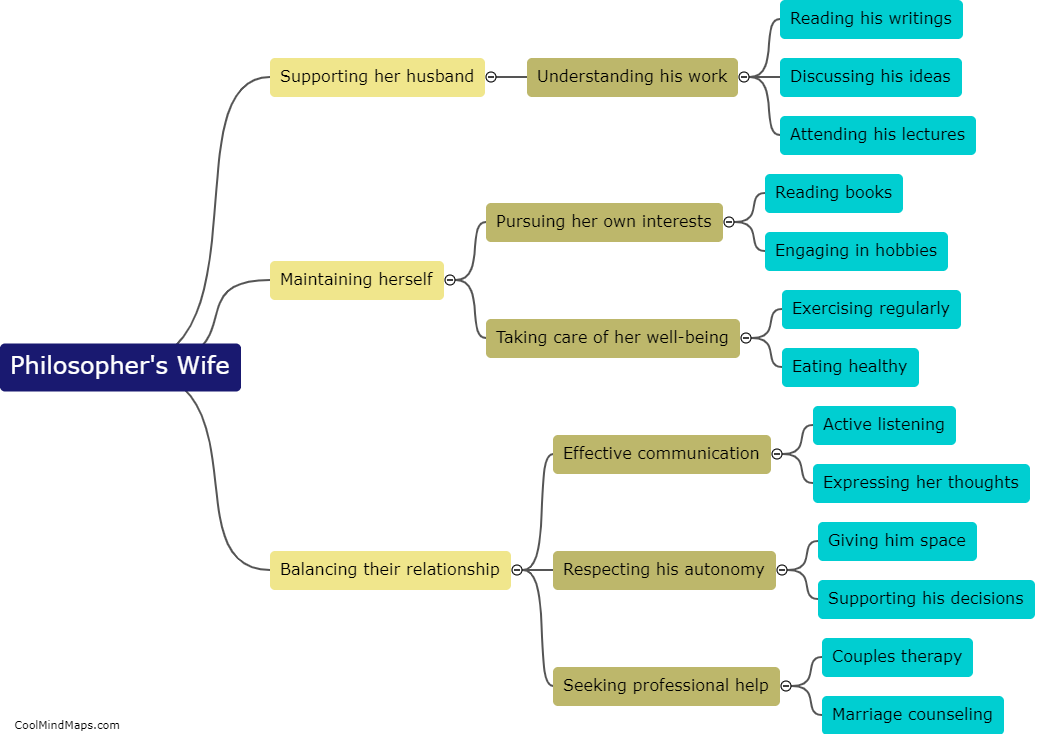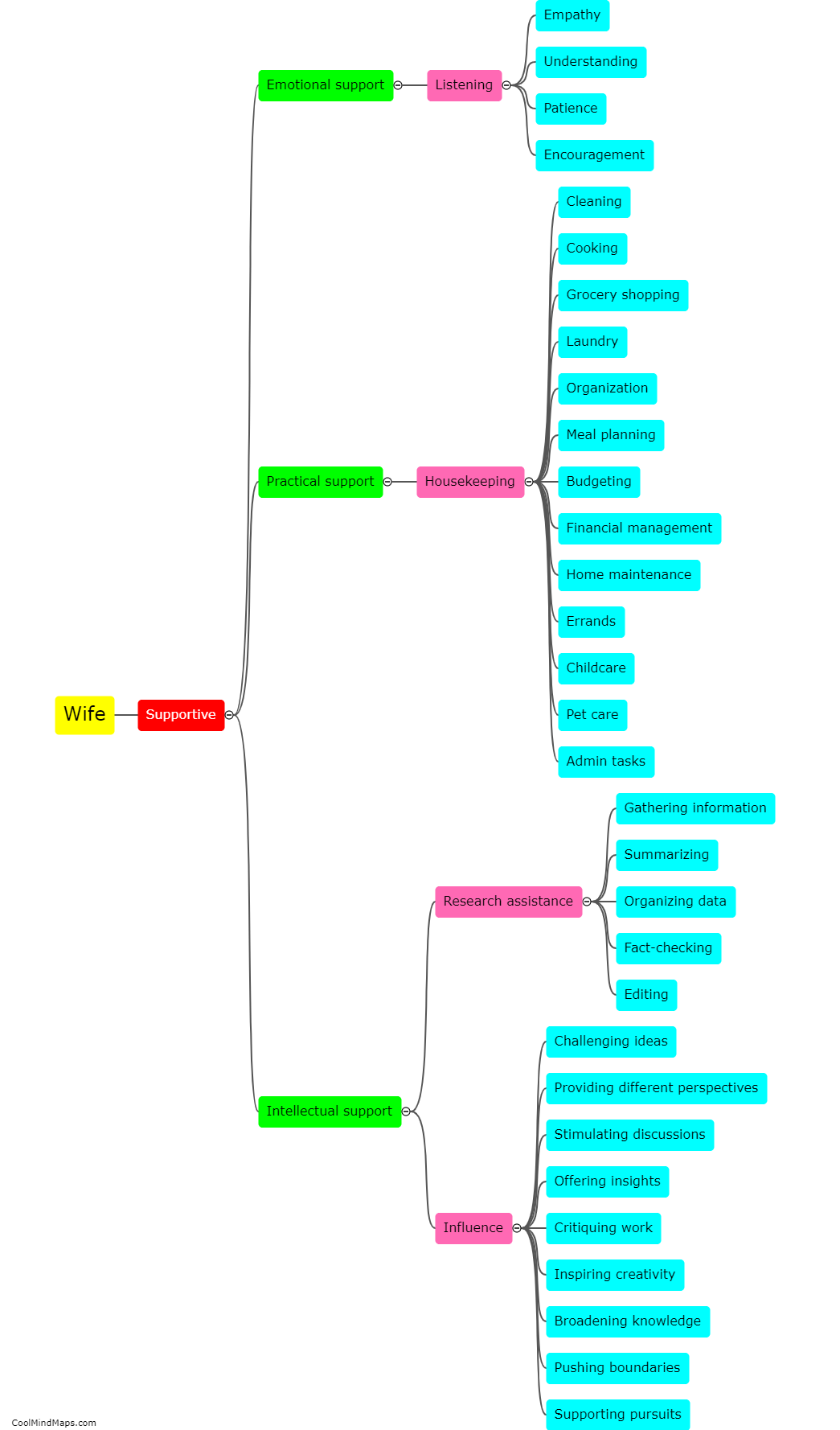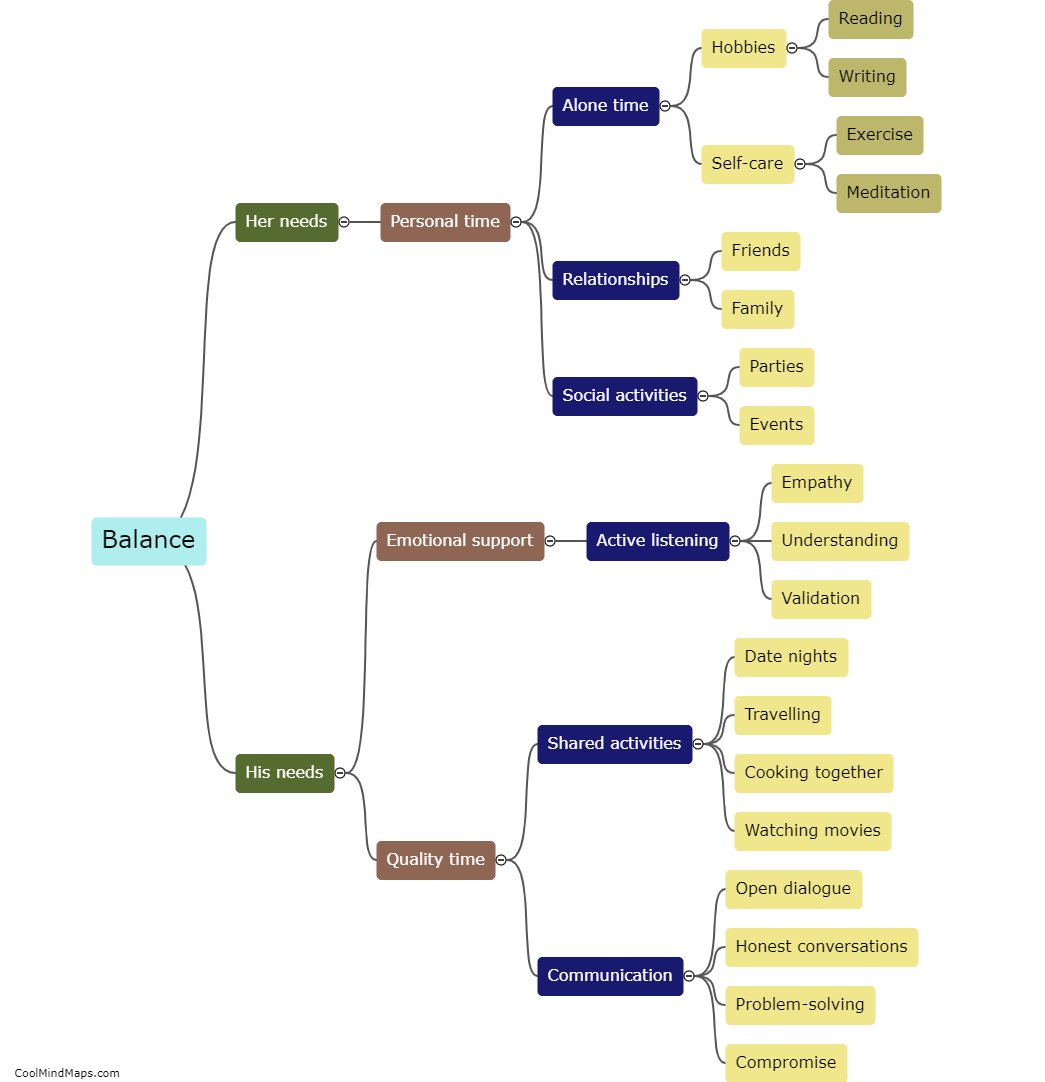How does a philosopher navigate ethical dilemmas in life?
Navigating ethical dilemmas can be a complex task for a philosopher. Philosophers often employ critical thinking and rational analysis to evaluate various moral perspectives and principles. They tend to rely on ethical frameworks such as consequentialism, deontology, or virtue ethics to guide their decisions. Philosophers may consider factors such as the consequences of actions, the intentions behind them, or the moral character required. They may also examine the broader societal implications and cultural context of ethical dilemmas. Furthermore, philosophers emphasize the importance of ethical reflection, seeking consistency and coherence in their ethical reasoning. Ultimately, philosophers strive to make well-justified and ethically sound choices when faced with moral dilemmas, taking into account both the practical and theoretical dimensions of the issue.
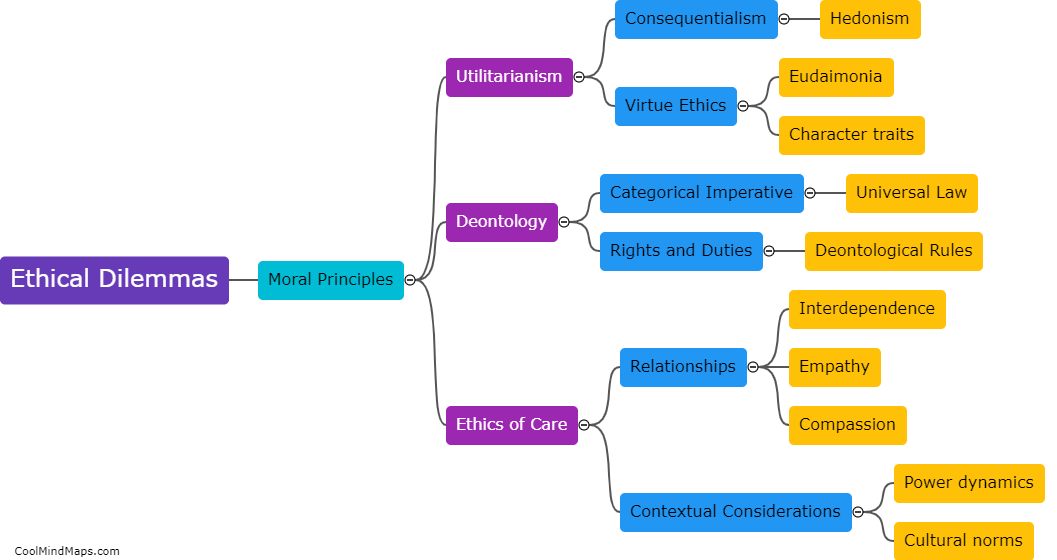
This mind map was published on 5 December 2023 and has been viewed 93 times.



